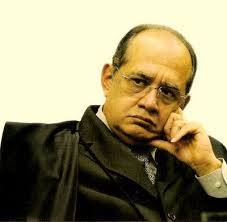Church’s Land Commission Demonstrates Increase in Violence Against Rural Workers
by Brasil de Fato*

The violence against rural workers is increasing in a disproportionate manner when compared to the increase of organised protests and marches by rural workers’ movements. The recrudescence of repression is highlighted in the publication Conflitos no Campo Brasil 2009 (2009 Conflicts in the Brazilian Rural Areas) released on April 15, 2010, by the CPT (Land Commission of the Catholic Church).
In the introduction by the National Secretary of the CPT, Antônio Canuto, it states that on the whole, the year 2009 “was a very difficult year,” with a marked increase in the outlawing [of rural movements]. According to the report, a pact between large rural landholders, the Congress, the Judicial Powers and the corporate press caused the noose to tighten on rural organisations, “undermining the support from society that has taken years of struggle to build up”.
Big increase in evictions
According to the publication, the year 2009 saw a 1.2% increase in conflicts in rural areas over the year 2008. Last year, there were 1184 conflicts, compared to 1170 the year before. However the increase in the number of arrests went up 22%, from 168 in 2008 to 205 in 2009. And the increase in the number of judicial evictions was even greater at 36.5%: 9077 families to 12,388. Fortunately, assassinations were down from 27 to 24.
In the report there are cases that, irrespective of the numbers, “pass the limits of good sense”. For example, on April 26, 2009, 18 rural workers were arrested after protesting in a construction area of the Tucuruí Dam project. “Before being sent to the [capital] Belém, they were obliged to march in parade handcuffed through the whole city of Tucuruí, on exhibition, as if they were some sort of trophy of the military police,” commented Canuto.
Attack by hooded men
Another episode recorded in the report happened on May 1st [National Workers’ Day]: “An encampment site of the rural workers by the roadside of BR230, municipality of Pocinhos, Paraíba, was attacked by a group of hooded men, who fired shots against the families, and detained and tortured seven of the workers. They threw gasoline on them and threatened to burn them alive.” The aggressors fled after the police arrived, and the officers arrested the workers, and accused them of being responsible for the violence. According to the CPT, in both cases, the activists were jailed for more than a month before being released.
 Canuto observes that “in spite of everything, the social movements resist and fight for their space.” Even so, the growth in evictions (36.5%) and arrests (22%) is disproportionate in relation to the increase of occupations, which rose by15% (252 in 2008 and 290 in 2009).
Canuto observes that “in spite of everything, the social movements resist and fight for their space.” Even so, the growth in evictions (36.5%) and arrests (22%) is disproportionate in relation to the increase of occupations, which rose by15% (252 in 2008 and 290 in 2009).
Besides this, in the other tables presented by the CPT, the number of actions of popular organizations fell. Fewer encampments were set up (from 40 to 36); there were fewer strikes and other protests connected to the struggle for workers’ rights (identified in the report as acts of resistance) (from 23 to 22); and there were fewer protests (from 676 to 589).
The CPT identified the rulings of Gilmar Mendes, who heads the Federal Supreme Court, as the key which precipitated this process of increased repression. In the introduction to the report, Canuto states that on February 25, 2009, this current leader of the Judicial Powers (who leaves his post this month) went to the press to accuse “the movements of practicing illegal acts,” and criticized the federal government for “committing illicit acts of funneling public resources to those who, according to him, practice such acts.”
Outlawing of social movements
This climate of outlawing [social movements] became nationally dispersed in August with a reaction to an agreement between Via Campesina and the federal government to update the indices of productivity of land. “The criticism of the announced measure was accompanied by generalized attacks on the rural workers’ movements. Senator Kátia Abreu and Deputy Ronaldo Caiado, aligned in their criticisms, collected signatures for the creation of a Mixed Parliamentary Commission of Enquiry (CPMI) to investigate the destination of public resources to movements which act ‘against the law,’ as affirmed by the president of the Supreme Court,” wrote Canuto.
The lobbies of the large rural landholders would have not succeeded in gathering enough signatures, had it not been for television  images and reports, released on 5 October, which showed rural workers occupying a large farm illegally obtained by Cutrale, a large orange juice company.
images and reports, released on 5 October, which showed rural workers occupying a large farm illegally obtained by Cutrale, a large orange juice company.
Finally, the report cites the formation of the Observatório das Inseguranças Jurídicas no Campo in February of this year. The initiative, from an alliance between large landowners and sectors of the Judiciary Powers, proposes to accompany actions which represent threats to the right of property, and to map “effective or imminent invasions of rural property.” According to the CPT report, the figure who is most prominent in this initiative was Gilmar Mendes.
Source: Brasil de Fato, April 22, 2010
This article was first published in NEWS FROM BRAZIL
supplied by Brazil Justice Net
Number 629, April 27, 2010
Visit our home page at: http://www.braziljusticenet.org
